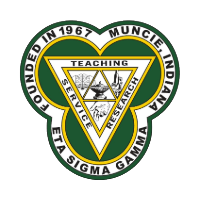ESG Poster Presentation
Program Planning and Evaluation
Wednesday Evening Poster Reception
WED-062 - Piloting National Public Health Week: A Program by Eta Sigma Gamma Delta Chi
Wednesday, April 16, 2025
6:00 PM - 7:00 PM PST
Location: Pacific I/II, 2nd Floor
Area of Responsibility: Area II: Planning
Keywords: Eta Sigma Gamma, Subcompetencies: 2.1.2 Facilitate collaborative efforts among priority populations, partners, and stakeholders., 2.2.2 Elicit input from priority populations, partners, and stakeholders regarding desired outcomes.
Research or Practice: Practice
Keywords: Eta Sigma Gamma, Subcompetencies: 2.1.2 Facilitate collaborative efforts among priority populations, partners, and stakeholders., 2.2.2 Elicit input from priority populations, partners, and stakeholders regarding desired outcomes.
Research or Practice: Practice

Art Perez, ESG member
Student
Texas State University
San Marcos, Texas, United States
Poster Presenter(s)
Learning Objectives:
At the end of this session, participants will be able to:
- Describe at least three ways to engage the young adult population in the receipt of health education materials on college campuses.
- Assess the available resources of your on-campus student-led organizations to develop a vision to implement a similar health promotion event.
- Identify three strategies for student engagement in health promotion events.
Detailed abstract description:
Objective: A pilot program was developed and presented by the Delta Chi chapter of Eta Sigma Gamma (ESG) at Texas State University to promote the health of college students. During National Public Health Week (NPHW) in 2024, activities aimed to increase awareness, knowledge, and access to resources regarding mental health, tobacco prevention, reproductive health, and physical activity were implemented as a pilot project. This information may be useful to other college campus organizations in the planning, implementation, and evaluation of pilot tabling events as a part of health initiatives targeting young adults on campus through student-led organizations.
Methods: Four days were dedicated to prevalent health topics among young adult college students. On mental health Monday, students and faculty were asked to write affirmations on a sticky note and share them on a banner. Students were encouraged to take affirmations and fidget toys to promote safe coping strategies for stress. On tobacco prevention Tuesday, students were asked to enter their submission for a tobacco-free slogan, and the winner received an Amazon gift card. Students were also given lollipops to serve as a substitute for oral fixation. On reproductive health Wednesday, approximately 420 goodie bags containing condoms and instructions were given out to students in Sewell Park. Students were asked to participate in an online survey to assess reproductive health knowledge. On physical activity Friday, ESG members and other students gathered to play in a volleyball tournament on campus. Additionally, a social media contest encouraged followers to submit a photo of them working out to promote physical activity. Participants in both activities were entered into a drawing for a chance to win a workout equipment gift bag, encouraging participation from in-person members and remote members.
Results: Each day, students were observed to be positively engaged with the activity. Items given out to the students served as reminders in their daily life of the health topic promoted. Distributing tangible resources and prizes was an effective way to spark engagement in the activity each day. By the end of the week, prize winners were announced. Promoting the event on social media boosted daily activity engagement and increased followers. ESG membership capacity proved to be sufficient to carry out the daily event.
Conclusion: The pilot program was successful in raising awareness among college students and distributing health promotion materials. Brief activities are recommended to avoid interrupting the daily schedules of students on campus. Similarly, faculty who shared reminders to visit the table, or allotted time during class increased engagement. The Delta Chi chapter of ESG has the capacity to implement public health week on main campus in 2025, increasing the target number of participants. It is in our best interest to create measurable goals to evaluate the impact of NPHW in 2025.

